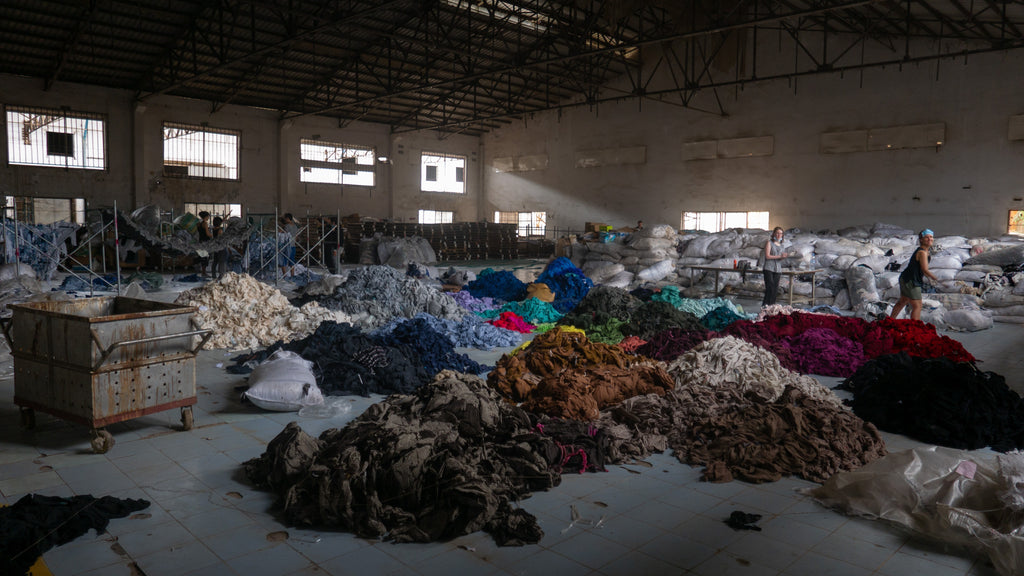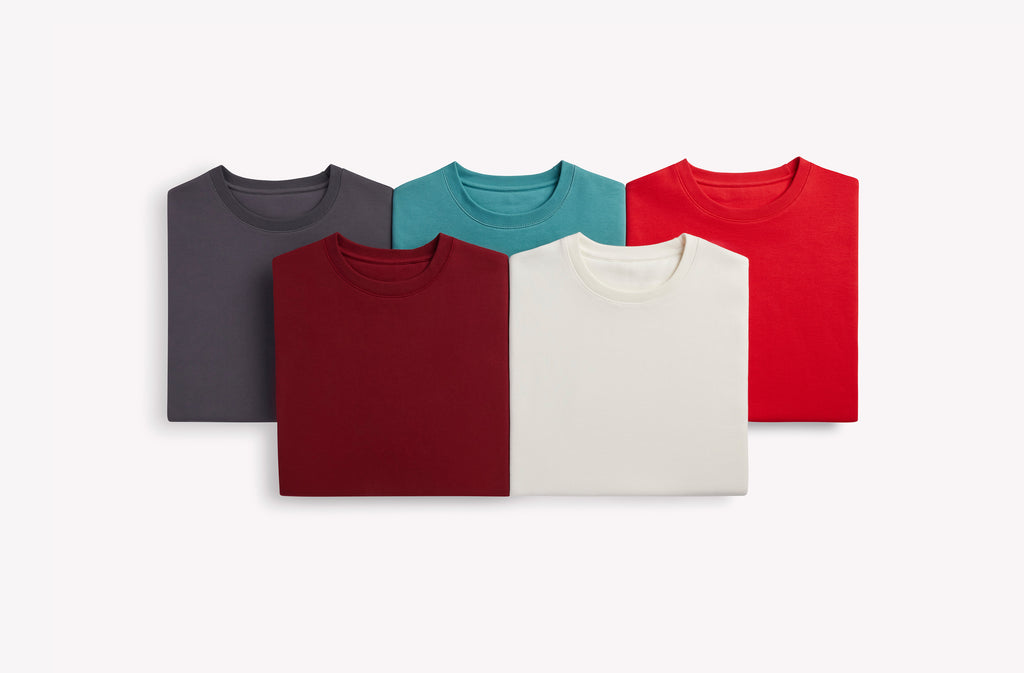What Does “Ethically Made” Mean?
Environmental Impact
The fashion industry is starting to take accountability for their part in the global climate crisis. In today’s society, fashion accounts for 10% of global carbon dioxide output, while also accounting for a fifth of plastic produced. Modern textiles use common petrochemical products that are commonly seen in oil and gas companies that drive a lot of greenhouse gas emissions. This stems from fashion heavily turning to polyester instead of cotton. Polyester is a plastic made from oil that has become accepted as a fabric material. Many eco-related issues stem from production processes such as these. As a whole, fashion is the fourth worst industry when it comes to global pollution. Fast fashion further escalates this issue. The fast fashion trend releases new trends that many retailers are trying to keep up with. This automatically creates negative impacts on the environment.
Many clothing companies are opting for change by switching to ethically and sustainably backed methodologies. Many times this starts with using a third-party auditor, such as EcoAct, to go through one’s entire business model and see the actual impact of their carbon footprint. After understanding a business's footprint, change can effectively begin. Common carbon reduction initiatives include sourcing both sustainable materials and eco-friendly materials. It goes beyond choosing the right raw materials, it is also refining the entire supply chain to be an eco-positive process. Companies are starting to make these changes and more often than not, it is becoming an expectation of the consumer.

Social Responsibility
Many people forget that part of sustainability includes fair and safe working environments for workers. We have caught glimpses of some of the dangerous conditions fast fashion has caused by exploiting ‘cheap’ labor. It’s a result of not caring about anything past the profit margin. Some of the 2023 sustainable development goals that aren’t being met within the fashion industry include decent work and economic growth, gender equality, and reduced inequalities. Since most apparel production is sourced outside of the United States, a lot of these dangerous side effects are ‘out of sight, out of mind’ for the company and the consumer. The sad reality is that the pressure to meet fast fashion expectations has led to women, specifically in Asian countries, being subjected to dangerous working conditions, inadequate pay, and gender violence. Sustainable fashion brands must evaluate their employee's working conditions. Many third-party certifications such as the GOTS certification, analyze a company’s entire supply chain and evaluates the conditions of their worker environments and decide if they are fair and safe. In order to have ethical clothing, one must have an ethical production process.
Avoiding “Greenwashing” in the Industry
In the fashion industry, ‘greenwashing’ is defined as unjustified, misleading, or false claims made by a brand that the products they sell are more environmentally friendly than they are. The easiest way to avoid being greenwashed in the industry is to educate oneself. Original Favorites prioritizes education for our clients by completing third-party certifications to help our customers trust their decisions in the apparel sector. Once you are aware of common ways companies try to greenwash their consumers, you will be able to spot when it is happening. You can read more about ways to avoid greenwashing and its place in our industry here.
Staying Informed about Ethical Practices
We provide our clients with eco-friendly blanks that don’t compromise quality, and we strive for ways to be a resource for our clients. Our Journal and other parts of our website include information surrounding many topics related to sustainability and quality. We dive into topics such as recycled materials, recycled fabrics, and what certified organic cotton means. We explain what our certifications mean, such as being OEKO-TEX certified. This explains the breadth of certifications include and what they can mean. We want our clients to have the resources to talk about transparency and sustainability in their supply chain process. That is how we are able to detail our entire supply chain from our farming to how our garments are pieced together. We are not only a luxury wholesale blanks company, but also a resource in the sustainability aspect of the fashion industry.

Raising the Bar in the Fashion Industry
The actions of the consumer are what drive the changes in the business. We have seen a trend where consumers want to purchase clothing that has been ethically sourced through sustainable practices. As this movement continues, changes will be made to where it is the only acceptable option. When looking at the wholesale industry, there are the same unsustainable options, and few luxury, eco-friendly product offerings. When choosing the latter you are choosing to support the bigger movement toward a better and more sustainable industry. Concentrating on sustainable clothing brands instead of the easy and cheap ones can go far when it comes to demanding a new standard from the clothing industry.
Ethically Made Apparel
Original Favorites provides a variety of styles of clothing that have been ethically produced and products that are backed by independent certifications for ultimate customer trust. All of products, including our hoodies, t-shirts, crewnecks, zip-ups, sweatpants, and sweatshorts, are made to contribute toward better sustainable practices. We want our customers to not only love the quality and the products themselves but to also have the reassurance that their purchases are made with the most updated global sustainability standards.





Leave a comment
This site is protected by hCaptcha and the hCaptcha Privacy Policy and Terms of Service apply.